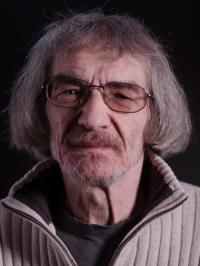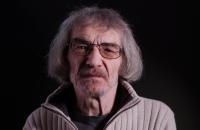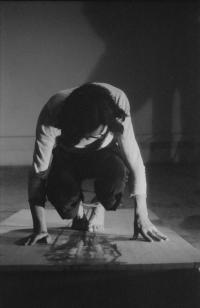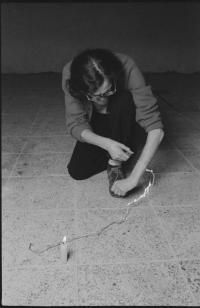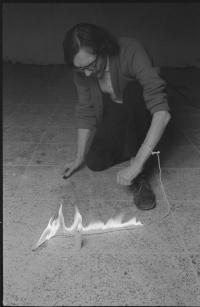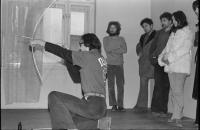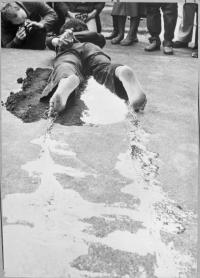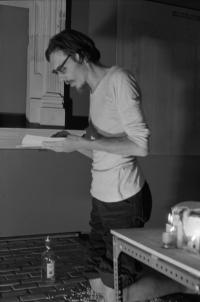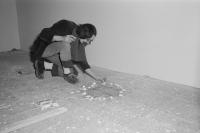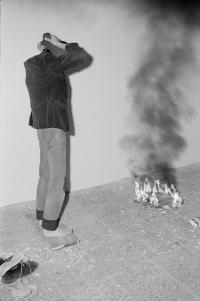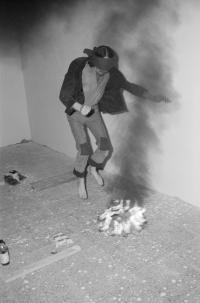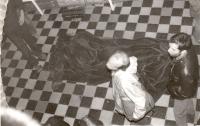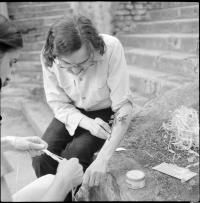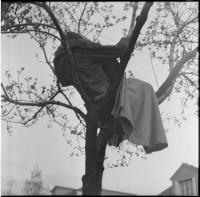I am happy to say that I was a gardener, not an artist

Download image
Petr Štembera was born in 1945 in Pilsen. He is one of the important figures of Czech action and conceptual art. He began with abstract paintings but soon shifted his focus to interventions in the natural environment. Later he became known as a body artist, performing extreme, psychically and mentally demanding interventions into his own body. He performed both in the Czech Republic and abroad. In 1977 his and Jan Mlčoch’s works were awarded the main prize at Youth Biennale in Paris. The next year, Christ Burden invited him to spend a month in the US. Because of his work he was interrogated several times by the secret police in the prison in Prague’s Bartolomějská street. Since late 1970s he was gradually giving up on his own production. At present he works as a curator of a collection of posters and paintings in the Museum of Decorative Arts in Prague.
